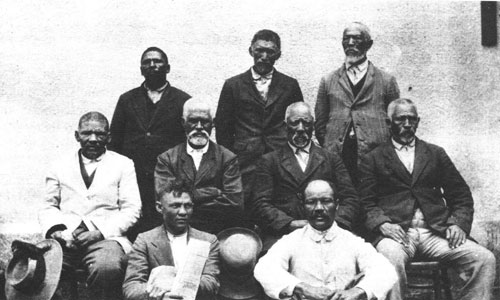|
Rehoboth Uprising
The Rehoboth Uprising of 1924-25 was the bloodless revolt of the Rehoboth Baster against the South African Administration in South West Africa. The revolt was caused by diminishing Baster autonomy and territory, as a result of Administration policies. The Uprising saw all sovereignty, autonomy, and power ceded from the Baster Council, the Baster magistrate and the Captains of the Rehoboth Baster, Captain, to the South African government. Background The Rehoboth area was originally inhabited by the Nama people of the Khoekhoe. In 1844, it was given the biblical name of "Rehoboth" by Franz Heinrich Kleinschmidt of the German Rhenish Missionary Society. During the eighteenth century, the Baster community emerged from the descendants of white, often Dutch or German, colonial men and Khoisan women. Two Baster communities originally existed: one which settled in East Griqualand led by Adam Kok III, Adam Kok, and the other which emigrated from Cape Colony to settle in Rehoboth, Namibia, ... [...More Info...] [...Related Items...] OR: [Wikipedia] [Google] [Baidu] |
Baster
The Basters (also known as Baasters, Rehobothers or Rehoboth Basters) are a Southern African ethnic group descended from white European men and black African women, usually of Khoisan origin, but occasionally also enslaved women from the Cape, who resided in the Dutch Cape Colony in the 18th century. Since the second half of the 19th century, the Rehoboth Baster community has been concentrated in central Namibia, in and around the town of Rehoboth. Basters are closely related to Afrikaners, Cape Coloured and Griqua peoples of South Africa, with whom they share a language and culture. Other people of similar ethnic origin, living chiefly in the Northern Cape, also call themselves Basters. The name ''Baster'' is derived from "bastaard", the Dutch word for bastard (or "crossbreed"). While some people consider this term demeaning, the Basters reappropriated it as a "proud name", claiming their ancestry and history, treating it as a cultural category in spite of the negative con ... [...More Info...] [...Related Items...] OR: [Wikipedia] [Google] [Baidu] |

